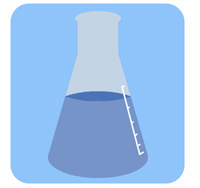 |
 |
@DonorsChoose, a great cause for bringing science to our most needy students
Tuesday, October 4, 2011
Summary of today's posts: The stuff of mentoring
Tuesday, November 9, 2010
Guest Post - XRayManCoUK: You never forget a good teacher
Tuesday, November 9, 2010
And the winner is...
Monday, November 1, 2010
The Press Releases: An ongoing dilemma
Friday, October 22, 2010
A little competition never hurt anyone, right?
Wednesday, October 13, 2010
But I don't wanna make an account to post in the forum: Creating a community
Tuesday, September 7, 2010
THE FaceBook for science is dead: What's next?
Friday, September 3, 2010
It's Contest Time in September
Wednesday, August 25, 2010
Get Your LabSpaces Junk
Saturday, August 7, 2010
Ed Yong, "So what's the deal with the Press Releases, Brian?"
Thursday, August 5, 2010
Living LabSpaces, for real
Tuesday, August 3, 2010
Guest Post by Jason Tetro: Why don’t we ever get 100% kill?
Monday, July 26, 2010
Points System is Now Active
Wednesday, July 7, 2010
Results of the press release
Tuesday, October 28, 2008
Press Release Links
Thursday, October 16, 2008
The big announcement!
Monday, October 13, 2008
PR web wrap up
Monday, April 21, 2008
Middle of the PRweb Press Release Week
Wednesday, April 16, 2008
Day 1 of the PRweb news Release
Wednesday, April 16, 2008
 |
 |
 |
 |
LabSpaces.net
LabSpaces.net
This is the LabSpaces site blog. You will find news and site updates here or posts on press or other coverage of the LabSpaces community
My posts are presented as opinion and commentary and do not represent the views of LabSpaces Productions, LLC, my employer, or my educational institution.
Please wait while my tweets load 
 |
 |
 |
 |

Credit: Flavio Takemoto
For starters, I really have no idea what it will take to get scientists to be fully engaged with the on-line world. It's hard enough to get them engaged in the real world (I wish that was a joke…). I think for most scientists to get involved with a network, we're going to have to develop something that significantly increases scientific productivity, and I'm not talking just a free reference management site or being able to post lab retreat pictures to a profile. The last 4-5 years have showed us that scientists really are not interested in FaceBooks for science. The marginal success of ResearchGate, NatureNetwork, and LabSpaces can't be cited as triumphs because very little of what goes on at any of those places is what I had in mind when I first developed my site. And the failure (whether they’re willing to admit it or not) of many of the other sites that had a business model of being a facebook for science highlights pretty clearly the demand for such sites. Now, the sites that have been successful are so because they found a niche. ResearchGate’s groups and Job listings appear to be relatively active, Nature Network has its blogs and forum, and LabSpaces has the news and Blogs. However, It seems like at least for LabSpaces, I've just catered to the scientists who were willing to interact on-line, and for the most part that's by the way of blogging about their science or the scientific experience. Now, there's nothing wrong with that, but it's a far cry from the collaborative tool that I think a lot of us FB4Sci developers were hoping for. So how can we change this? How can we get more scientists involved in these types of collaborative websites?
Barriers to Science Social Networks
First, I think it's a good idea to put into perspective what the barriers are to getting a critical mass of scientists doing science on-line, sharing ideas, and collaborating on projects with people they’ve never physically met. These barriers are formidable and I think, in many fields, you'll never be able to get past them.
1. The culture – The culture of scientific fields varies significantly. There are some fields that lend themselves well to collaboration while others do not. It seems like the most willing on-line collaborators are the computer scientists while the least collaborative are in the life sciences. This may have something to do with each group’s familiarity with computer use or how comfortable they feel sharing data on-line. Many life scientists want to bleed their data dry before offering it up on the secondary market (and I think A LOT of scientists feel this way). Another factor is likely the way that science has been done. Many of the habits of science evolved a hundred years ago. There will have to be a major change in the dogma of the scientific culture for science to become web based, open, and collaborative. Do I see this happening tomorrow, or in 10 years? No. I wouldn’t ever chance tenure on open notebook science. Not because I don’t think it’s a good idea, but because the people who make tenure decisions are so ingrained with “how to do science” that doing science differently could have very negative results.
2. Secrecy – The whole premise of a facebook for science is information sharing. These networks are all about data! The types of data that can be found on social networks varies greatly. The type of data and information I’d like to see shared on a science network is probably the least likely to ever appear! I have gotten the feeling that a scientist would give up his social security number and credit cards on-line before he’d make his data open and shareable. Scientists are inherently secretive for so many reasons. BUT for the most part, I can’t argue with their concerns.
3. Getting scooped – As I said, social networks trade in data. Science social networks should trade data and ideas, but with that comes the concern of ownership. Who owns the ideas and data? Who is reading them? What’s the guarantee that I’ll get credit for MY data and MY work without someone stealing those ideas and scooping me? I’ve seen a lot of talk about this on a lot of blogs and over at friendfeed. People talk about data and blog timestamps, but when it comes down to it, if someone scoops you and publishes your amazing ideas in Nature, you’re screwed. No one cares about the timestamp and your competitor could easily say they knew nothing about your blog/post/forum and came up with the idea independently. That’s not too far fetched in fields that are oversaturated with researchers.
4. Patents – It actually surprised me that the first person who called me after my website launch was from the University of Iowa legal department. This was definitely something that I hadn’t considered when I developed LabSpaces, but he told me that I should make researchers aware that if they post ideas in a public forum that it may make them ineligible for patenting their products or ideas. It’s sad that this is the state of the law, but patents and intellectual property rights are huge for universities and biotech businesses, so this whole utopian idea of information sharing and idea collaboration in an open forum was doomed to fail from the beginning.
5. Access to Experts – One of the greatest benefits of a University system are your local colleagues. If you’re missing a reagent, you just walk down the hall and get it. If you’re having trouble learning a protocol, you talk to your neighbor/friend who is already doing the technique. What I’m saying is that many researchers already have many instant resources in walking distance. The benefit of an on-line network would be a diversity of information sources, but that doesn’t mean they’re better or faster than what a researcher can get by talking to the guy down the hall that has 15 publications. From personal experience on already established “help forums”, I’ve found the advice and knowledge level to be subpar at best with little understanding of WHY things are done (Sometimes the crowdsourcing crowd is full of morons). If push comes to shove, you can always email experts in the field for advice using publication searches. The expert network has already been curated, at least in the life sciences. Just find the expert and send them an e-mail for their protocol. I myself have done this many times and most researchers are extremely helpful. So why do we need a network or a forum when the experts are already at our fingertips in the literature?
Making Science Social
Given these barriers, what’s the best way to get scientists involved with a social network where the focus is discussing science and collaborating on various projects? You may think that based on my list of barriers and the opinions there-in that I have given up on social networks for science. I guess a part of me has. I don’t see scientists embracing new media or internet social networking en mass to share ideas and collaborate with strangers. It’s just not going to happen from a cultural perspective and from a technological perspective. I do think that the fields which lend themselves well to data sharing and collaboration will have no problem creating niche sites, but there will never be a “Facebook” that all scientists go to on a daily basis. The toolkit required for that to happen would be massive. How could a developer ever satisfy the needs of a geneticist, chemist, physicist and astronomer. I’m getting a headache just thinking about it. Maybe I’m jaded by the last 5 years, but I’m convinced that scientists aren’t interested in using social networks for work purposes (or I’m just not smart enough to figure out how to make this happen).
There has been a lot of talk about how the semantic web is going to revolutionize how we use the internet. I have heard and read so much about this over the past 5 years that I think it’s going to be hard to live up to the hype. From a scientific perspective, the semantic web sounds great. It’ll be a perfect way to discover new connections between people and data. The problem is getting the people and the data involved! And again, many people have spent the last 10+ years trying to socialize science on-line using forums and later social networks with marginal success. I’m not sure that making data semantic is going to revolutionize scientific interaction. We have a tremendous backlog of semantic data (the literature). We even have semantic search engines to probe the literature, and the results are unimpressive at best… I also think the data that lends itself well to semantic interaction is limited. This again points back to the culture of doing science. In summary, I’m not sold on the semantic web or semantic science, but I really hope I’m proven wrong.
Of course there are many different types of social networks out there, so we can’t give up on scientists just yet! I think what we need to do is to trick scientists into using social networks and then once we have them trapped, we can force them to understand the advantages of a web-based social network. I think sites like Mendeley or CiteULike have an advantage here because they have created a product that scientists can use to increase productivity. If they’re interested in making scientists more open to data sharing and collaboration remains to be seen, although I think Mendeley does have facilities in place for paper/manuscript sharing.
My approach to kidnapping scientists is going to be a little different though. I’ve become much more interested in the politics of science and increasing public science literacy. I’d like to see more scientists interacting with the public on a social network to help bring down intellectual barriers. By bringing in bloggers to talk about their science and their daily lives I think we've brought the whole profession of being a scientist down to a much more tangible level and have shown the general public that many of us aren’t self-absorbed elitists. I know that running LabSpaces has been invaluable in helping me to better communicate my science to people who ask me, “What do you do for a living.” I see fewer glossy eyes these days, and I hope to help other scientists break through that barrier by interacting with others in an open forum.
Social Science That Works: Citizen Science
But it’s not all doom and gloom here! Science data isn’t completely closed and we’re slowly seeing cracks in the secrecy armor. I’m really excited about citizen science initiatives because they have a two fold function. They get the general public interested and active in science AND they give a lot of groups access to cool data that would never see the light of day.
-The GalaxyZoo community has made some really cool discoveries by scanning back logged astronomy data.
-FoldIt is a game that lets participants try to find the best folded structure of a protein and researchers have found that gamers are much better at folding proteins than standard algorithms.
You can read more about projects like this or find out about other great science initiatives over at Science for Citizens.
Closing
Finally, I’d like to close by saying that I have high hopes for on-line science social networks. I don’t see the scientific community embracing a single scientific network like a true “FaceBook” for science. The attraction of scientists to a network is not going to be the network itself, that’s apparent, so it’s going to come down to developing a network around tools that help make a scientist’s life easier. The “problem” for developers is that the number of tools that overlap between fields and disciplines is too small for any network to really dominate the science social network landscape which could limit large scale investment in social network based free tools. I do however, see niche networks arising that provide specific tools for certain fields. A great example of this being the high throughput sequencing tool Galaxy out of Penn State
This post has been viewed: 4924 time(s)
 |
 |
I do think that the landscape will change in coming years. We are at the very base level a consumer society. Consumption of ideas/thoughts/advice is becoming the norm, and even though science drags it's ass most times, we will get there eventually.
I don't know any first year grad student that hasn't looked at openwetware or posted to a mailing list. Even old school scientists are getting better at embracing the internet. Look at the perdue flow cytometery email list: it's a great way of sharing ideas. The reason why it's not in a better format (google wave would have been great for it)is a money/time issue. Maybe when every scientist sees the internet as a tool and not as waste of time, we will get better.
My new boss said something somewhat telling this weekend at the conference. He said he likes hanging out with all of his science friends, but only so often at conferences. Otherwise it's too much to handle all of the competing interests. I guess that'd be another drawback of an always-on network.
I've been following your tweets for a while now, and I couldn't help but follow up on this one. Thanks for the post! It was an informative read. There are, however, three key elements that I don't believe you mention in your post that I'd like to address; we report regularly on these topics at iSGTW.
1. Generations. Kids who are teenagers today grew up with social networks and online collaboration. It's hardwired into the way they interact with other people. I suspect that by the time they are ready to retire, barring an enormous culture shift in the opposite direction, that the scientific subculture will have embraced a lot of the tools and ideals that you have in mind.
2. Funding agencies. The funding agencies have the ability to require all sorts of things of the researchers they fund. For instance, beginning in October, all funding requests to the US National Science Foundation must include a data management plan (see http://www.nsf.gov/news/news_summ.jsp?cntn_id=116928&org=NSF&from=news). If you go to that link, you'll notice that they explicitly state that this is intended to pave the way for requiring all data from publicly funded research to be made public.
3. Grand Challenges and Big Science. Many of these are also coming as mandates from funding agencies, but not all. They consist of diverse researchers from across the country or world coming together to collaborate on a single project, and doing so using a web portal. The web portals for these projects generally serve as a repository for data, a place for collaboration, networking, and project management, and even a place for running applications to analyze or visualize data. Many are in their nascent stages, but others have already had some success. A incomplete list of some of these:
http://www.iplantcollaborative.org/
http://www.neptunecanada.ca/
http://www.geongrid.org/
http://www.myexperiment.org/
http://vivoweb.org/
http://geochronos.org/
http://nees.org/
http://nanohub.org/
(those last two are both using the same platform, HUBzero, which has been released as open source; according to the lead developer there are plans for the different hubs to be able to interact with each other)
Of those listed, nanoHUB has probably been in active use for the longest.
The NIH also recently funded 2 groups to develop social networks for the sciences. One's based here at UF. There was a huge press release about it here because it was for $50 million! But I have yet to see or hear anything about the development. I know that they were trying to make it a datamined network so researchers don't have to input their information, it's just auotpopulated from what can be found through grants and google. Certainly if the NIH or NSF starts mandating that people must do certain things through a science portal, you'll see "some" use. Will it be the use you intend? Who knows. That's like forcing kids to eat vegetables and you raise a bunch of broccoli hating adults :P
Guest Comment
If you're liking something to being Facebook - then maybe looking at Facebook's history helps?
Designed for students, t then opened up to other students from different universities. How log did it take to become international, to open up to graduates, non-students?
Why did the silver surfer generation, the Gen X,Y and their parents an younger siblings join up?
Social sharing of what they're doing. Photos, videos. Now location too - does this model fit with scientists?
How can you give those using the site the advantage over those not? how to play the system. Wouldn't it be better to focus on niches like current students? Then grow with them?
Whom will be the folks who set up the Stack Overflows for students who already have Facebook?
For me, that would be a fun experiment - find the largest field of science being taught, identify if you could make a student stack overflow for them. Science cries out for social tools - to help learn R with less masochistic pain than their peers or teachers for example.
Epernicus? Their numbers are no better than laboratree, scilink, labroots, labscout etc (which I would consider failures). I haven't visited them in a while, but the last time I visited I didn't see much activity. BenchQ is an interesting idea, but it's only as good as your network is large and I don't think they've reached a critical mass there (and I don't think we have here either!). I still find tweeting questions to be the most effective. Although, that's a last resort. I usually ask colleagues or neighbors first ;)
@Tom, The way the network is rolled out is definitely key. However, I think facebook had two important factors on its side, luck and exclusivity. At the time, Facebook had very little competition and its competition was horrendous ie friendster et al. One of the other roll out issues is that it takes a lot of money to advertise and hype up a network. I'm not talking $5k here, it takes A LOT of investment up front to get the word out. For me that just wasn't possible. I'm not sure how you could hype up a roll out of a science social network these days in the shadow of all of the other networks out there.
I like your idea of trying to set up an R centric network. That would be an interesting experiment, but the questions comes back to, "How can an R centric network attract all disciplines to THE facebook for science?" It can't, that's why I think there are going to be a lot of niche science networks. My main concern is that developers will shy away from creating these networks because the profit margin of a niche network is so small. If you're going to charge for a service it has to be mindblowingly good, otherwise you're dead in the water to start (Labmeeting or mynetresearch anyone?). The other mechanism for creating site is to try to get a grant to create a free science portal and I think that's the direction things are going to have to head.
I also agree about it being an age/gen thing, I really do think it'll be easier as time goes by, since it will become more of a norm, at least on the social setting. In order for it to become the norm for the science part, I think Universities will have to show the power in it. Meaning giving hw assignments that the students won't know how to do, and give them access to a social/sci network and find how quickly and easily their Qs can be answered. I think that could be a huge push for more collaboration from early years of schooling. I can see that sort of thing starting here as well, and then being brought over to the Uni arena.
I was thinking, in order to know who the LS crowd is right now, and better cater to them on the immediate time scale, maybe we can have a survey pop up on the main window asking who they are grad/undergrad/work/field. With that in mind maybe you and the bloggers can connect more directly to the readers and start to build up the coopoeration that you're talking about, that will eventually lead to a more free mentality of future scientists.
I do believe blogging is a great way to get people talking about science online. Maybe we're not sharing protocols, but we do share ideas. And I often find that I learn a lot about how I do science when I read about other bloggers' (even vague) descriptions of their work. In time, I bet the science blogosphere will morph into something even more substantial. With the rate at which online communication evolves, however, it's just hard to predict when/what that will be!
not sure if all this is just generating light and no heat though.
Has anyone tried a network where users have control over who sees what (I'm a little clueless about what's already been tried)? For example, where I could share data etc. with trusted collaborators, but no one else sees it, and also have the ability to put out more general information accessible by all? Perhaps the way to start is with a user-friendly collaborative platform that could be expanded into a more "social network" kind of site.
I am aware of collaborating groups using Google Docs (or wikis) as a way to do this kind of thing. But that's not really what Google Docs is aimed at. I can imagine a more "PI-friendly" system that's a sort of cross between a wiki and Google Docs. I'm not suggesting that LabSpaces go that route. I'm more trying to make the point that maybe Facebook is the wrong model to pursue for science. At least at this point in time.
David, I think I'd question the accounting practices of ChemWeb and BioMedNet. I doubt that scientists have become complete technophobes since their demise. And if they were so popular, why did they die out?
Thanks for the link, Alan!
Hey Brian,
Thanks for your truly unique and thoughtful take on the problem of developing collaborative tools for scientists. There are a lot of blogs out there who have touched up on this briefly and I found your take to be the most detailed and thoughtfui.
I am the co-founder of a science start-up and I give this problem a lot of thought myself. Quartzy (my start-up) is not a traditional networking site for scientists. We like to think of it as a 3-way network: A network of scientists AND the things that they use in the lab: reagents, facilities and more.
We have launched an online inventory managemen software for scientists where scientists can upload their inventories and network them with their lab-mates to create a lab inventory on the fly. They can now share chemicals, comments for the chemicals that they use, place orders with their lab manager, see who has ordered what in the past and more.
The software is all online so there is nothing to install. Quartzy has been up for more than a year and has thousands of scientists logging to manage their inventories, schedule appointments on shared facilities and more. I would be happy to talk to you more about Quartzy if you find it interesting and would like to write about it!:)best wishesAdam
You have pretty much hit the nail on the head Brian. I don't think that this will catch on. I am only just starting out my career but I understand the importance of keeping data secret until it is published. For this to work we have to revise academic science from top to bottom. Publish or perish cannot work with this system.
The other problem is if you find a really important piece of data in your field and just post it, how do you get to emphasize its impact without doing the key follow up study that makes it relevant. And if you are going to wait for that then why not package it up as a manuscript for print?
Maybe I am being too narrow minded, but I don't really see how this would work...
Yeah, I see your point will, you're most likely right that this wouldn't work, but something definitely needs to be done about the publish or perish mentality anyway, that surely isn't the best way to do things either. You're right that it would take a serious rehash of academia though. The problem is the most secretive people are probably the most competitive and might not play fair anyway. It's difficult to know who to trust when careers are on the line. However, it seems to me that a lot of time is wasted repeating experiments that others have already done simply because we don't share enough. One idea might be to create a journal or a forum for negative data so that we have more of an idea of what's already been tried.
A friend of mine is trying to get some companies involved in setting up some kind of analysis website to look at all published work from all scientific disciplines, she is convinced that we must know more than we already do, but people from completely different fields who have no reason to collaborate, don't talk about their work, but if they did it's possible that something from an entirely different discipline could be very applicable to a particular problem in another field.
 |
 |
 |
 |



















no link . . .Read More
Link to anonymous blog . . .Read More
Link to facebook account . . .Read More
I wonder how long it’s been since you graduated, Brian. You’ve heard of Stockholm Syndrome, no? When you say things like: I have the utmost of respect for my mentor. My scientific. . .Read More
That's not the only thing you can do with it: http://blog.pascallisch.net/?p=223 . . .Read More